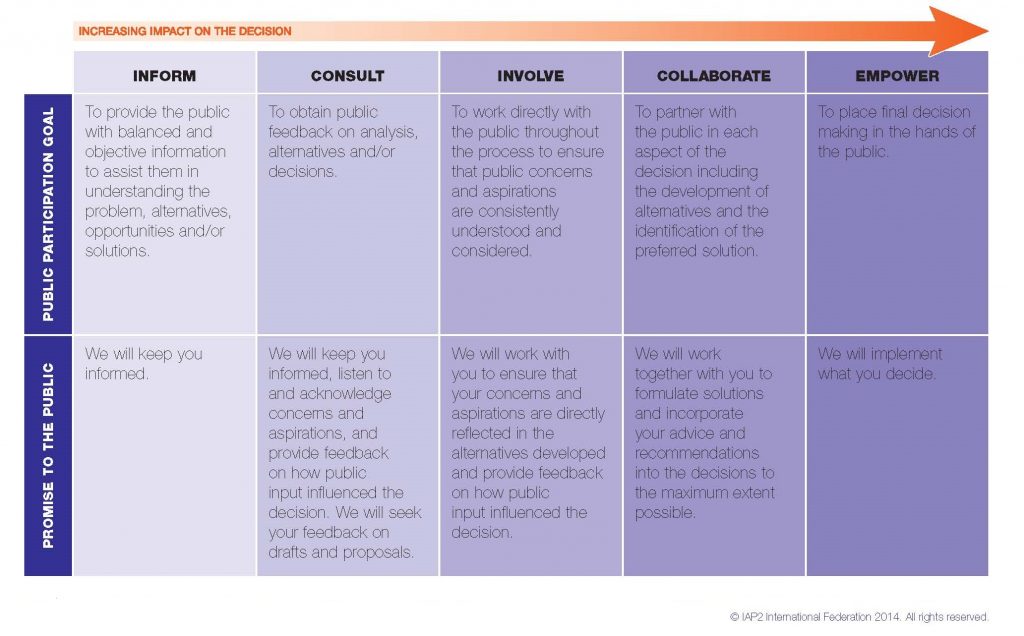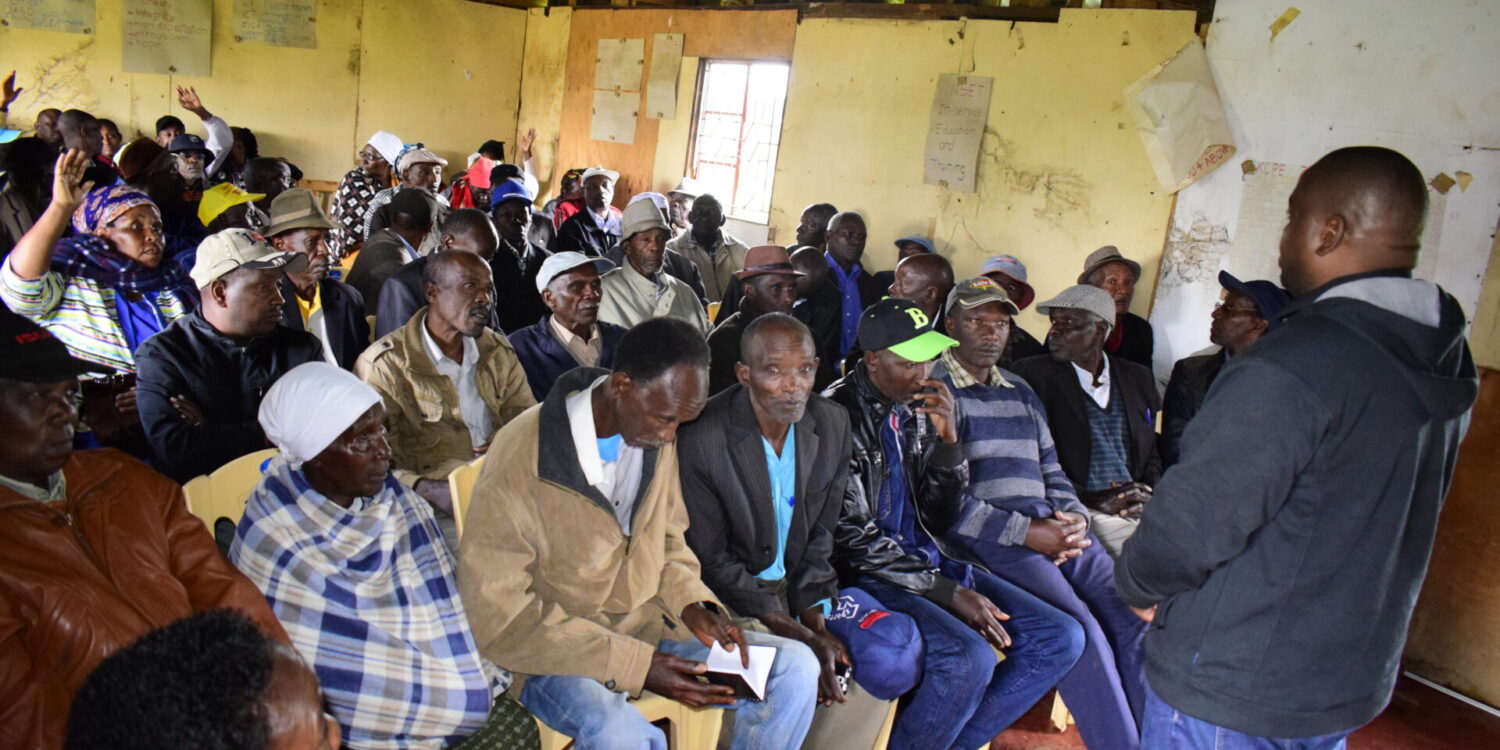Public Participation Bill 2025
When Parliament tabled the Public Participation Bill, 2025, we welcomed it. At last, there’s a serious effort to build structure around a practice that has too often been treated as symbolic. Public participation is not just a constitutional obligation—it’s the soul of democracy. But for too long, the way it’s been handled in Kenya has reduced it to theatre.
The Bill is timely, necessary, and deeply important. But unless we confront the ways our current public participation process excludes, frustrates, and sometimes outright ignores citizens, we risk passing a law that simply cements the status quo.
Where Participation Fails the Public
You know the routine if you’ve ever been to a public participation forum in Kenya.
First, there’s a notice in the newspaper—usually buried, in English, with little context. Sometimes the local chief or MCA calls a few familiar faces to attend. The meeting is held in the middle of the day, in a hard-to-reach venue. The government officials arrive with a PowerPoint in English, maybe Swahili, and speak in policy jargon that even lawyers would find taxing. There’s a Q&A, or what passes for one. Comments are taken. A list is signed. Then everyone leaves.
What follows is worse: nothing. No report. No follow-up. No record of what was said or what impact those words had. Citizens who show up are left wondering: did that matter? Were we heard? Or was this just a performance?
This process, as it currently exists, excludes the very people it claims to serve. It privileges those who can afford to leave work during the day, who live near the venue, and who are confident in formal language. It ignores the digital reality of how most Kenyans actually communicate today. And it has no real mechanism to show how public input is used—if it is used at all.
It’s this broken ritual that the Public Participation Bill, 2025 must fix.
What We’re Proposing—and Why It Matters
At the Open Institute, we’ve submitted our formal recommendations to Parliament.
Our goal is to help ensure that the Bill doesn’t just formalise participation—it transforms it.
Here’s what we’re proposing, and how it will serve every Kenyan:
1. Anchor Participation in Global Standards
We propose inserting a clause that links Kenya’s participation framework to global principles like the IAP2 Core Values and the Aarhus Convention. This helps us align our practices with international norms—not as a substitute for our Constitution, but as a complement. It signals seriousness to the world, and gives our institutions a stronger foundation for doing participation well.

2. Define Clear Principles of Participation
We’re asking for a new section that sets minimum standards: early engagement, access for persons with disabilities, the use of local languages, gender and youth inclusion, and both digital and traditional outreach. Right now, too much is left to discretion. These principles make the law practical and predictable. They turn participation from a hopeful ideal into a lived reality.
3. Give the Registrar Real Teeth
The Bill proposes a Registrar—but we want that office to be useful. We recommend that the Registrar run a national public participation portal, assess government institutions regularly, open county liaison offices, and submit its own budget to Parliament. Participation cannot be an afterthought. It must be properly funded, coordinated, and visible. That’s how we protect it from political neglect.
4. Use the Channels Kenyans Actually Use
We’re calling for public notices to be published not just in newspapers, but also through dominant social media platforms. Meetings should be livestreamed and recorded, with videos available for at least six months. This is not optional. As of 2024, over 17 million Kenyans use Facebook. Newspaper circulation is below 200,000. If we’re still communicating policy only through print, we’re deliberately excluding the majority. When politicians are mobilising for a public rally they are creative. We can have similar creative methods to make sure that people attend.
5. Close the Feedback Loop
We’ve proposed that public participation reports must show who attended, what was said, and how that input influenced the outcome. Dissenting views should be documented, not erased. Reports must be published within 14 days and remain accessible for five years. That’s how we build trust. When people see that their views mattered—even if not adopted—they’re more likely to engage again. And we stop treating participation like a black hole.
6. Build a Law That Can Evolve
Kenya changes fast and so does technology. That’s why we’ve proposed a mandatory five-year review of the Act, to make sure it stays relevant and effective.
This Is Not Theory. It’s Already Happening.
Take Rehema Iha’s story in Malindi. Rehema is part of Kwacha Afrika, a local CBO working with Maono Space. When she learned that Kilifi County’s Annual Development Plan (ADP) was 500 pages long, only in English, and available only at county offices, she knew most citizens had no real access to it.
So she took action.
She brought together over 20 local CBOs to translate and simplify the document. They created short summaries in Swahili. They held town hall meetings across Malindi and shared updates on social media. Within three days, more people attended public engagement forums than ever before. And they didn’t just attend—they understood, asked questions, and gave useful feedback.
Rehema didn’t wait for the government to fix the system. She hacked the system. And it worked.
Now imagine if the law required every government office to do what Rehema did. Imagine if all public policies had to be shared in local languages, through local networks, with digital support. Imagine if participation started with the people, not just the paperwork.
That’s the kind of democracy we’re trying to build.
A Call to Every Kenyan
This Bill is a chance to get it right. To go beyond box-ticking. To build a new contract between citizens and state.
We’ve submitted our recommendations, which you can read in full here. But your voice is now the most important. Parliament has opened the Bill for public comment. We urge every Kenyan—citizens, CBOs, professionals, students, elders—to speak up. Tell them what real participation means to you. Tell them what you’ve seen and what you want changed because this law is not just about public meetings. It’s about power.
And for once, we have a real shot at making it fair.













